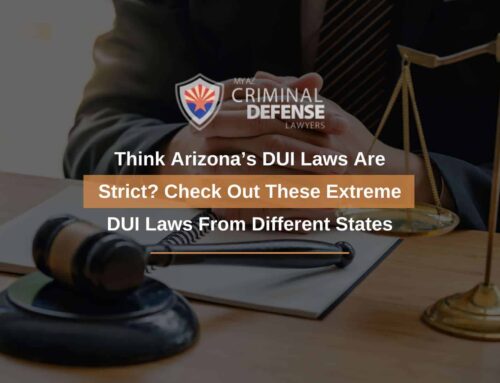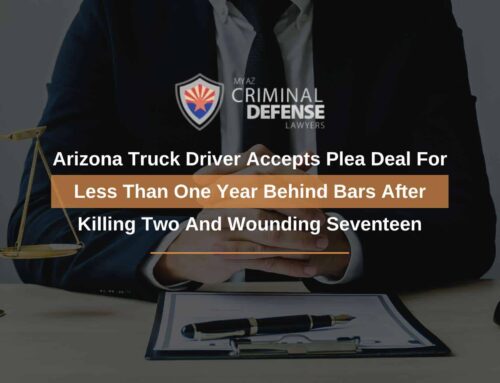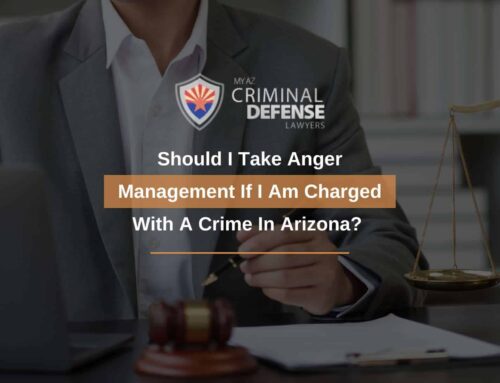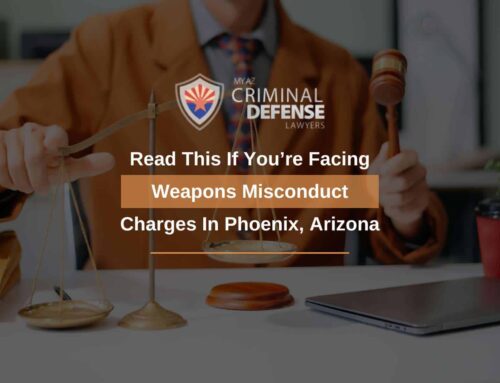What Rights Does Donald Trump Lose In Arizona As A Convicted Felon?
On May 30, 2024, Donald Trump made history (again) as the first U.S. president to be convicted of a felony. In fact, he was convicted of 34 counts of falsifying business records. The charges stemmed from hush money allegations from mistress and porn star Stormi Daniels. Trump and his former attorney, Michael Cohen, offered her $130,000 to stay quiet about her affair with Trump prior to the 2016 presidential election. Cohen was to make the initial payment, and Trump was supposed to pay him back in monthly installments of $35,000 throughout 2017. The jurors took 12 hours over two days to render the guilty verdict. The trial was in Manhattan and the verdict comes from the state of New York.
Donald Trump’s sentencing hearing is set for July 11, 2024, at 10AM. Because he is a first-time offender and the offenses were not violent offenses, experts predict that Trump will not be sentenced to incarceration. However, defendants convicted of the same crime have previously ended up serving time in New York. Trump’s team has announced they plan to file a series of post-trial motions in the next few weeks. If those motions are unsuccessful, they plan to appeal the verdict. The sentencing is scheduled for just a few days before the Republican National Convention begins in Milwaukee, meaning Trump would need to be back and forth between the two if the matter isn’t resolved before then. Despite nearly a decade of Trump’s controversial participation in politics, some wonder if these felony charges could be the breaking point for exasperated voters in this year’s presidential election. It seems that Trump is unlikely to serve any time behind bars, so the real verdict will come this November.
Most people are familiar with the concept of convicted felons losing certain constitutional rights. Trump’s continued candidacy in the 2024 presidential election may seem counterintuitive to this notion. How can Donald Trump be convicted on 34 criminal charges and still be allowed to run for the highest office in the country? Each state has its own consequences for being convicted of a felony offense. However, there are no such restrictions in the U.S. Constitution, and Trump is running for federal office rather than a state position. Therefore, his felony convictions don’t automatically disqualify him from the 2024 presidential election.
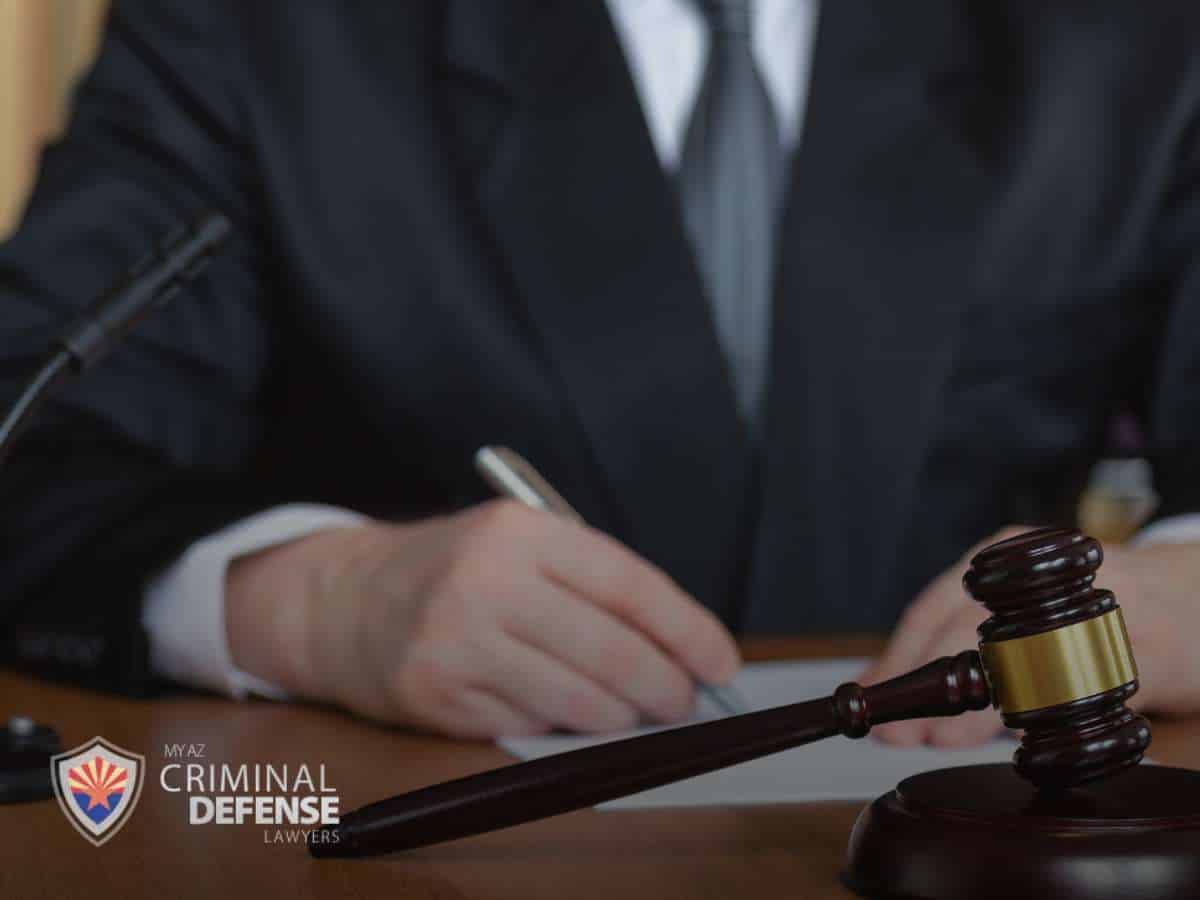
Which Rights Would Trump Lose in Arizona?
In Arizona, convicted felons lose certain rights, such as the right to vote, run for public office, and own a firearm. Therefore, while Trump is allowed to run for president of the United States, he would be ineligible to run for a state office such as governor of Arizona. He also would not be able to vote for himself as president if he were registered to vote in Arizona. It should also be noted that some countries will not allow convicted felons to enter their borders. Currently, 38 countries, including Canada and Mexico, don’t allow convicted felons to enter. This could create issues if Trump is re-elected and needs to travel to those countries for diplomacy reasons. But Arizona also provides simple paths to rights restoration for convicted felons.
Restoring Civil Rights After an Arizona Felony Conviction
In Arizona, a convicted felon will need to complete certain terms of their conviction, such as incarceration, payment of fine, and probation. A defendant may also be ordered to pay restitution, or financial compensation to the victims of their crimes. Per A.R.S. § 13-907, first-time felony offenders qualify for automatic rights restoration if they complete all of their court-ordered requirements. Under this statute, there is no need for a special motion or hearing on the matter. All that is required is that the defendant have no prior felony convictions and complete their sentencing requirements. However, if the defendant was convicted of a dangerous offense, Section 13-907 might not restore the defendant’s firearm rights. Dangerous offenses, as defined by A.R.S. § 13-704, are ineligible for automatic restoration of firearm rights after completing sentencing requirements. The same goes for serious offenses as defined by A.R.S. § 13-706 and their equivalents in other states.
A convicted felon who does not meet the requirements described above will need to submit an application to restore their civil rights. This application is not meant to be used by dangerous and serious offenders as prescribed by Arizona law. If the applicant has already requested their rights be restored and had that request denied by the court, it is considered a Request for Reconsideration. Here, the applicant must submit an explanation of why the court should reconsider its previous denial of rights restoration.
Convicted felons submitting the application to restore rights must include a Certificate of Absolute Discharge from Imprisonment. This is a certificate from the Arizona Department of Corrections that shows that the applicant served their incarceration sentence. If victim restitution has not yet been paid, the applicant must provide an explanation as to why. If the applicant is involved in any other cases, they must provide the case number(s) and if there are any active warrants. If the applicant has two or more felony convictions and is seeking to restore their firearm rights, the applicant should submit a statement in support of their firearm rights restoration. The applicant can provide any other information they believe is relevant to the court’s consideration. For more information about submitting a convincing application to restore civil rights after a felony conviction in Arizona, call 480-833-8000 to schedule your free consultation with our firm.
Can Trump Pardon Himself If Re-Elected President?
The distinction between state and federal conviction, the factor that allows him to continue his campaign for U.S. president, would also be the barrier to keep him from pardoning himself if re-elected in November. If Trump is re-elected, it will give him the opportunity to pardon federal offenses, but it would not give him the authority to pardon state offenses. Because the convictions are out of the state of New York, Trump will not be able to pardon himself whether or not he is re-elected president. In the state of New York, convicted felons can apply to have their civil rights restored through a Certificate of Good Conduct. Convicted felons must wait a certain amount of time before applying to restore civil rights with this process. In Trump’s case, the minimum waiting period is 3 years.
Experienced Arizona Attorneys Prepared to Defend Against Felony Charges
For the 99%, when up against dozens of felony charges, penalties like jail time and fines are more than likely. But while Trump likely won’t face the full force of the law like the average individual would, he was represented by a team of skilled legal minds. If you’re facing criminal charges in the state of Arizona, you should also consider retaining a criminal defense firm to handle your case. Our Arizona criminal defense team is prepared to litigate a variety of criminal charges, including both misdemeanors and felonies. We will help you achieve the best possible resolution for your situation given the facts of your case. To get started today with your free consultation by phone, call 480-833-8000 or contact us at My Az Criminal Defense Lawyers.

My AZ Criminal Defense Lawyer
Mesa Location:
1731 West Baseline Rd., Suite #100
Mesa, AZ 85202
Office: (480) 448-9800
Glendale Location:
20325 N 51st Avenue Suite #134, Building 5
Glendale, AZ 85308
Office: (602) 509-0955
Tucson Location:
2 East Congress St., Suite #900-6A
Tucson, AZ 85701
Office: (520) 441-1450
Avondale Location:
12725 W. Indian School Rd., Ste E, #101
Avondale, AZ 85392
Office: (623) 499-4222

